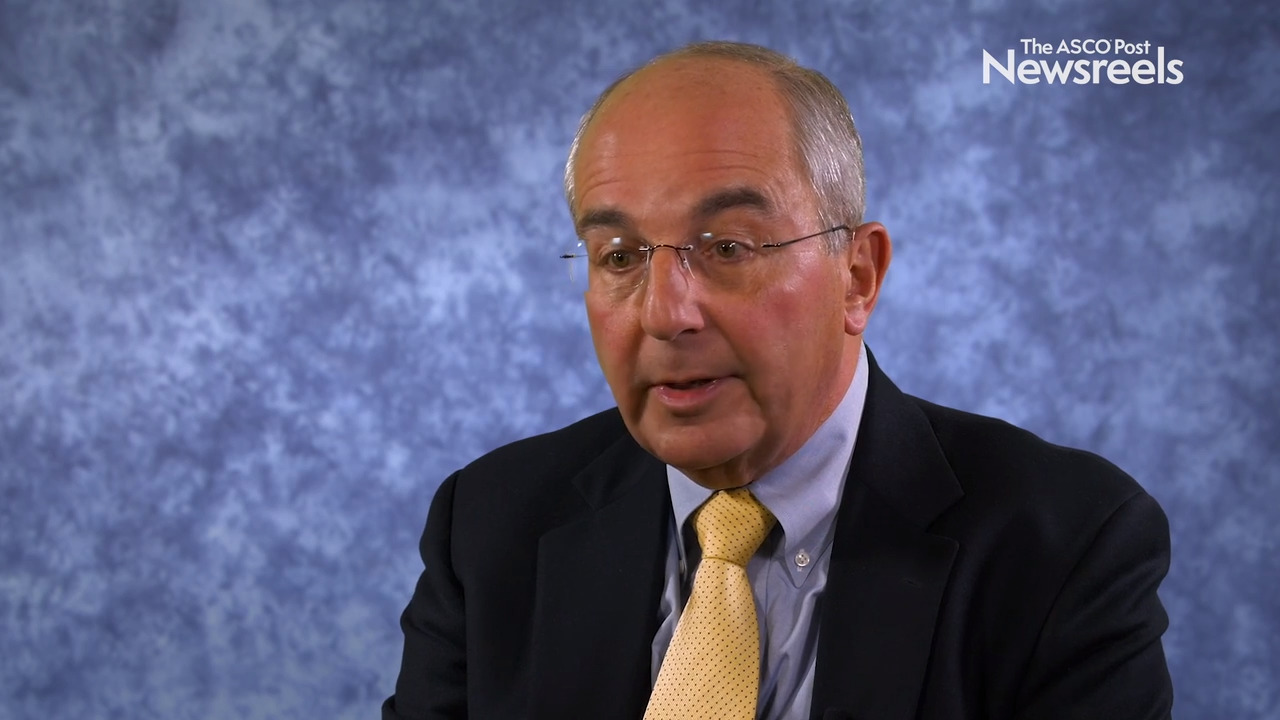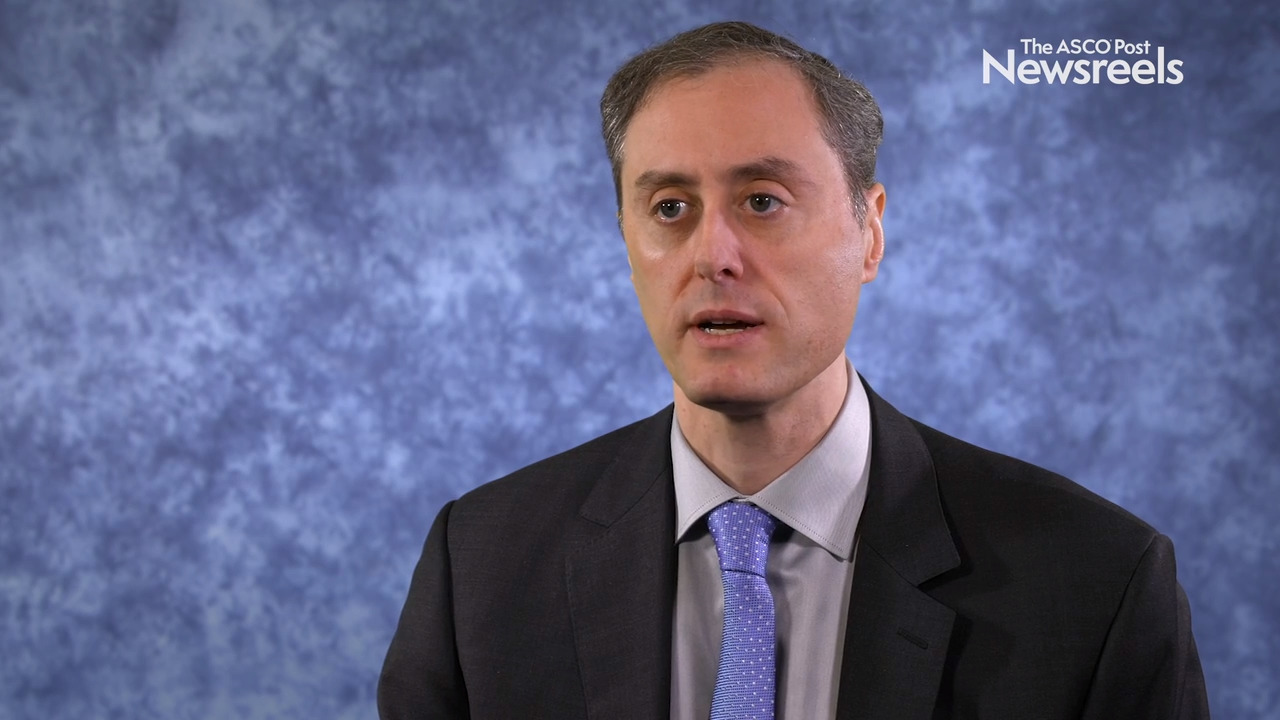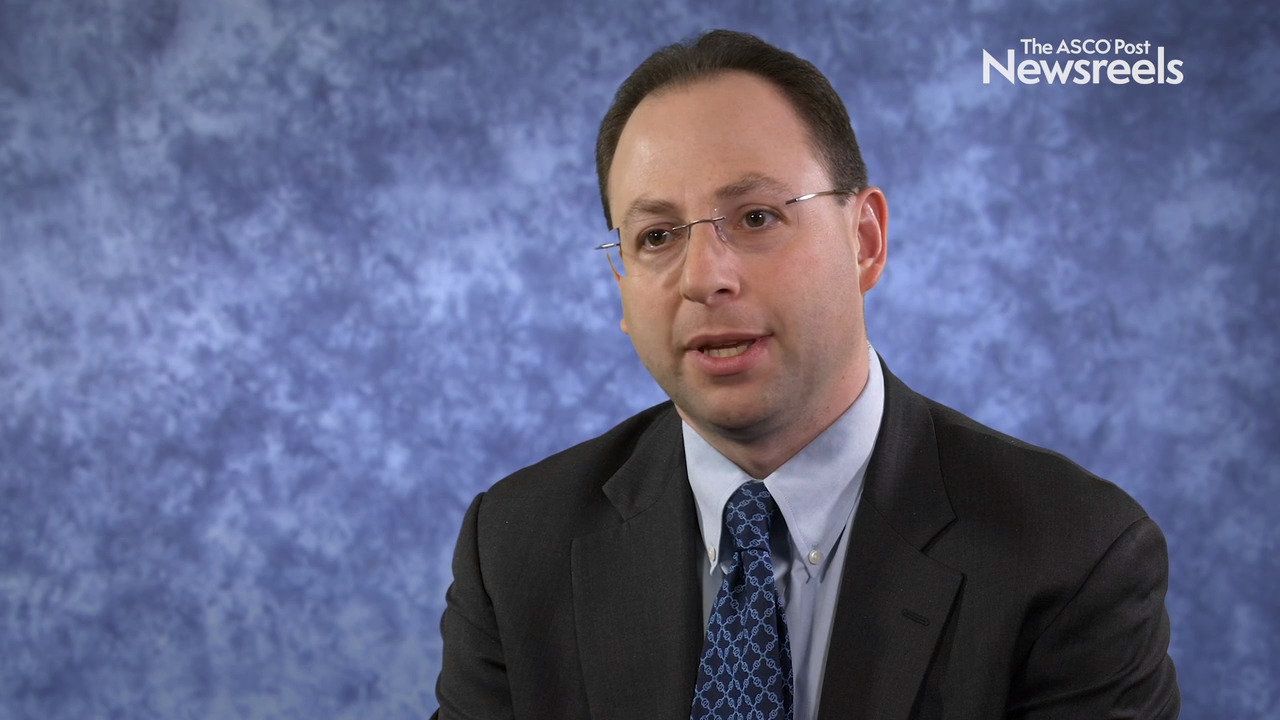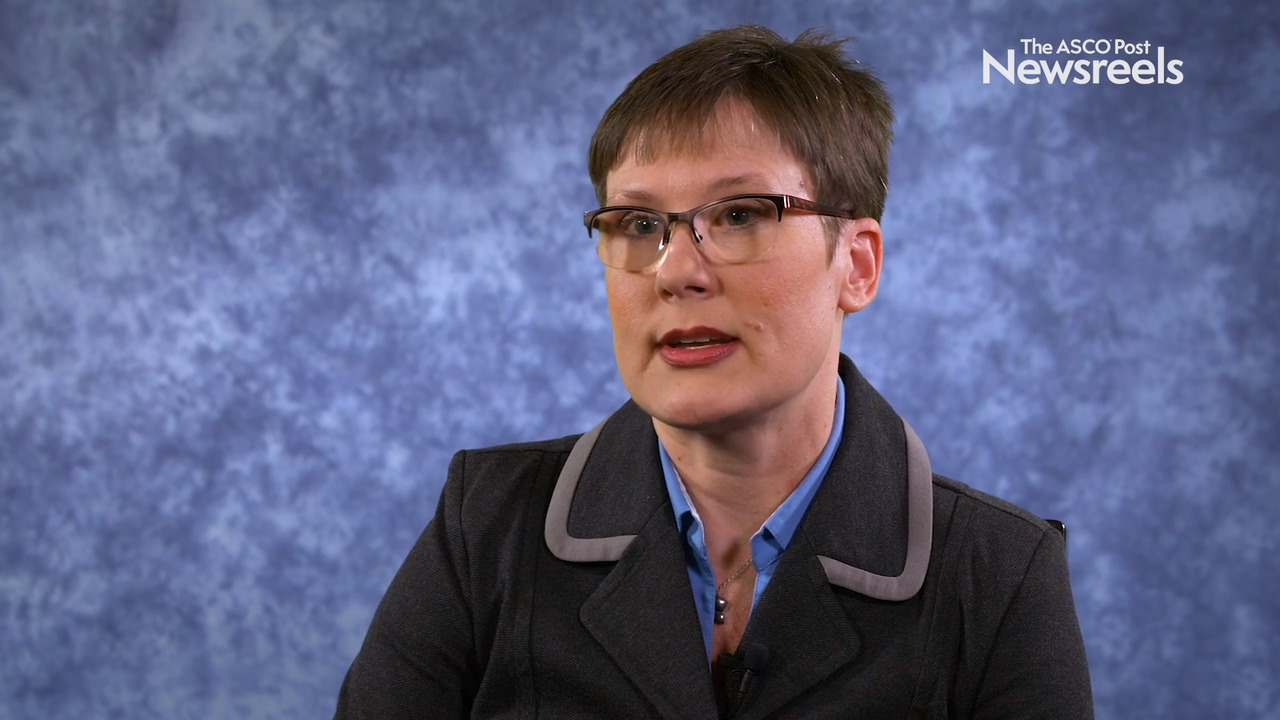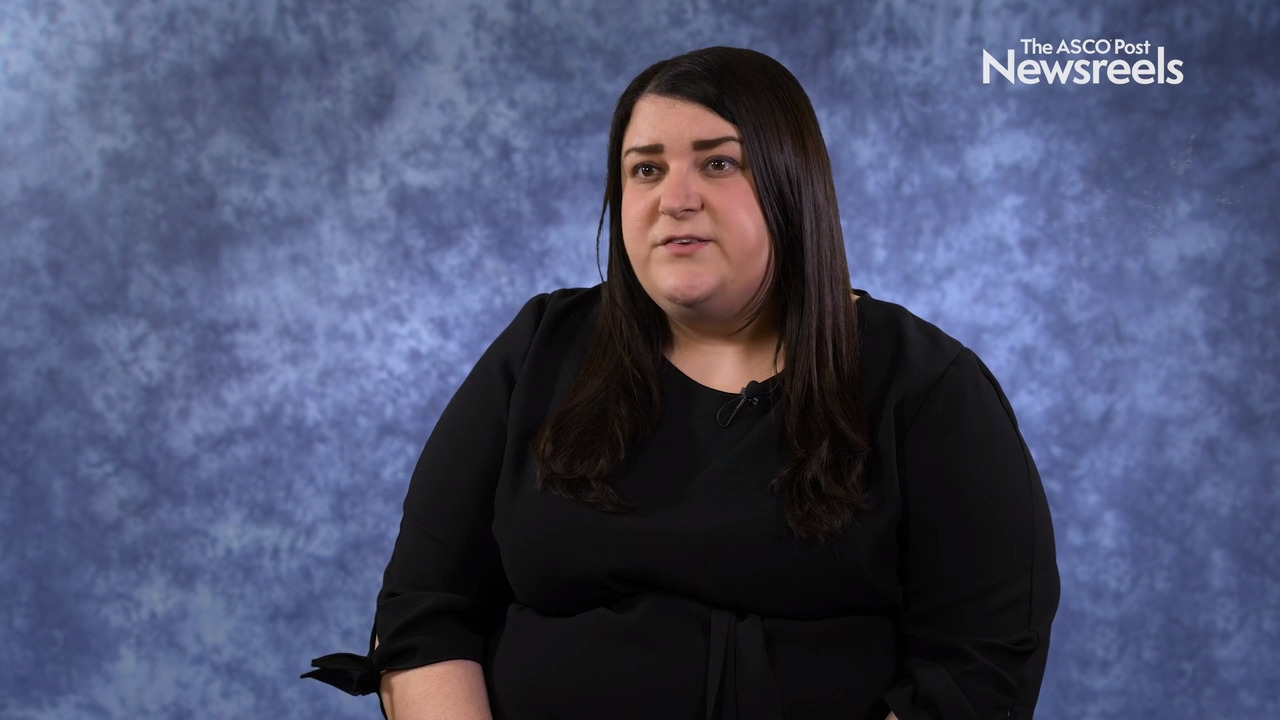Jill Gilbert, MD, on HPV-Associated Oropharyngeal Cancer: Challenges in De-intensifying Systemic Therapies
2020 Multidisciplinary Head and Neck Cancers Symposium
Jill Gilbert, MD, of Vanderbilt University Medical Center, discusses this ongoing area of investigation and which patients can safely undergo a de-intensification of treatment. Based on two randomized trials, cetuximab should not be substituted for cisplatin as a de-intensification strategy in HPV-positive oropharyngeal cancer.
The ASCO Post Staff
David Adelstein, MD, of the Cleveland Clinic, discusses the hypothesis that treatment can be de-intensified in patients with HPV-associated oropharyngeal cancer and a good prognosis.
The ASCO Post Staff
Jared Weiss, MD, of the University of North Carolina, Chapel Hill, discusses outcomes for patients with stage III or IV disease who are ineligible for the standard treatment of cisplatin plus radiotherapy. His data suggest that treatment with pembrolizumab/radiotherapy instead is tolerable, with improvements seen in progression-free and overall survival (Abstract LBA1).
The ASCO Post Staff
Jonathan D. Schoenfeld, MD, MPH, of Dana-Farber Cancer Institute and Brigham and Women’s Hospital, discusses phase II study results with the PD-1 inhibitor nivolumab or the combination of PD-1/CTLA-4 inhibition with nivolumab/ipilimumab in patients with newly diagnosed untreated oral cavity cancer (Abstract 1).
The ASCO Post Staff
Carryn M. Anderson, MD, of the University of Iowa Hospital, discusses the investigational agent GC4419, previously shown to be safe and effective in decreasing the duration, incidence, and severity of oral mucositis in patients receiving concurrent cisplatin and radiation for oral cavity and oropharyngeal squamous cancers. The 2-year tumor outcome data suggest that GC4419 does not seem to compromise tumor control (Abstract LBA2).
The ASCO Post Staff
Assuntina G. Sacco, MD, of the University of California, San Diego, discusses the results of a small phase II study, which suggest that pembrolizumab plus cetuximab may show activity for platinum-refractory/-ineligible patients with recurrent or metastatic head and neck squamous cell carcinoma (Abstract 15).
